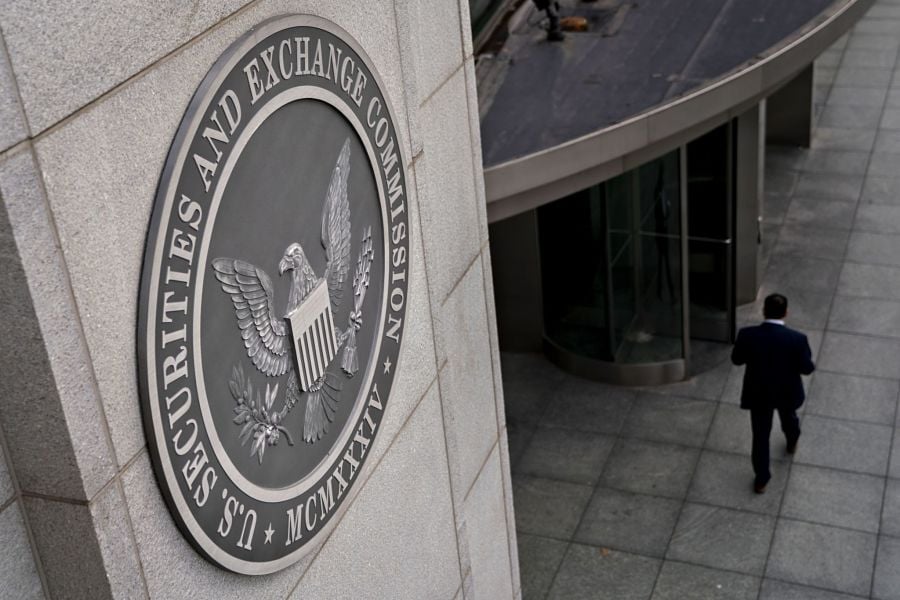

A new era in SEC enforcement actions seems imminent in which the regulator seeks admissions of guilt from firms and holds gatekeepers personally accountable. The Securities and Exchange Commission is focused on accountability based on first-of-their-kind enforcement actions that it has taken, as well as comments that its leaders have made.
“When it comes to accountability, few things rival the magnitude of wrongdoers admitting that they broke the law, and so, in an era of diminished trust, we will, in appropriate circumstances, be requiring admissions in cases where heightened accountability and acceptance of responsibility are in the public interest. Admissions, given their attention-getting nature, also serve as a clarion call to other market participants to stamp out and self-report the misconduct to the extent it is occurring in their firm,” Gurbir Grewal, director of the SEC’s Division of Enforcement, said in remarks at SEC Speaks 2021 in mid-October.
The SEC will also charge individuals personally, Grewal said, citing separate cases involving an attorney and accountants as examples.
“When gatekeepers are living up to their obligations, they serve as the first lines of defense against misconduct. But when they don’t, investors, market integrity and public trust all suffer,” he said. “That’s why gatekeepers will remain a significant focus for the Enforcement Division, as evidenced by some of our recent actions.”
More recently, SEC Chair Gary Gensler pointed to the SEC’s willingness to bring new types of enforcement when summarizing SEC enforcement actions for fiscal year 2021.
“As these results show, we go after misconduct wherever we find it in the financial system, holding individuals and companies accountable, without fear or favor, across the $100-plus trillion capital markets we oversee,” Gensler stated in mid-November.
All told, broker-dealers, investment advisers and investment companies accounted for 39% of SEC enforcement actions in fiscal year 2021.
The SEC brought 110 actions against broker-dealers and 159 versus investment advisers and investment companies in the 12 months that ended Sept. 30, according to SEC enforcement statistics.
Actions against investment advisers and investment companies represented the largest share of actions (23%) while broker-dealers drew 16% of the actions. In comparison, in fiscal year 2020, investment advisers and investment companies were the primary classification for 19% of total actions, while broker-dealers accounted for 20%, for the same combined percentage (39%) as in fiscal year 2021.
Among new enforcement actions in fiscal year 2021, broker-dealers accounted for 36 civil and stand-alone actions, or 8%, while investment advisers and investment companies were subjects of 120 (28%). New enforcement actions increased by 7% from the prior year, while total actions decreased by 3%.
All told, the SEC’s Enforcement Division filed 697 enforcement actions in fiscal year 2021, including 434 new actions, 120 actions against issuers who were delinquent in making required filings with the SEC and 143 "follow-on" administrative proceedings seeking bars against individuals based on criminal convictions, civil injunctions or other orders.
The SEC obtained judgments and orders for nearly $2.4 billion in disgorgement and more than $1.4 billion in penalties in fiscal year 2021, which respectively represented a 33% decrease and a 33% increase from amounts ordered in those same categories in the prior fiscal year. Fiscal year 2021 also was a record year for whistleblower awards. The SEC awarded a total of $564 million to 108 whistleblowers, including the largest awards in the program’s history — of $114 million and $110 million. It has now made more than $1 billion in awards since the program’s inception.
“This year has seen a number of critically important and first-of-their-kind enforcement actions, as well as record-breaking achievements for our whistleblower program, which we expect will lead to even more successful actions in the future," Grewal said in announcing the regulator’s enforcement results for fiscal year 2021.
And the SEC intends to hold firms and individuals accountable when pursuing those actions.
Margie Webber is a regulatory director of compliance focusing on broker-dealer and investment adviser issues for RegEd, a provider of licensing and registration technology and outsourcing services and broker-dealer compliance management solutions.

Relationships are key to our business but advisors are often slow to engage in specific activities designed to foster them.

Whichever path you go down, act now while you're still in control.

Pro-bitcoin professionals, however, say the cryptocurrency has ushered in change.

“LPL has evolved significantly over the last decade and still wants to scale up,” says one industry executive.

Survey findings from the Nationwide Retirement Institute offers pearls of planning wisdom from 60- to 65-year-olds, as well as insights into concerns.
Streamline your outreach with Aidentified's AI-driven solutions
This season’s market volatility: Positioning for rate relief, income growth and the AI rebound
